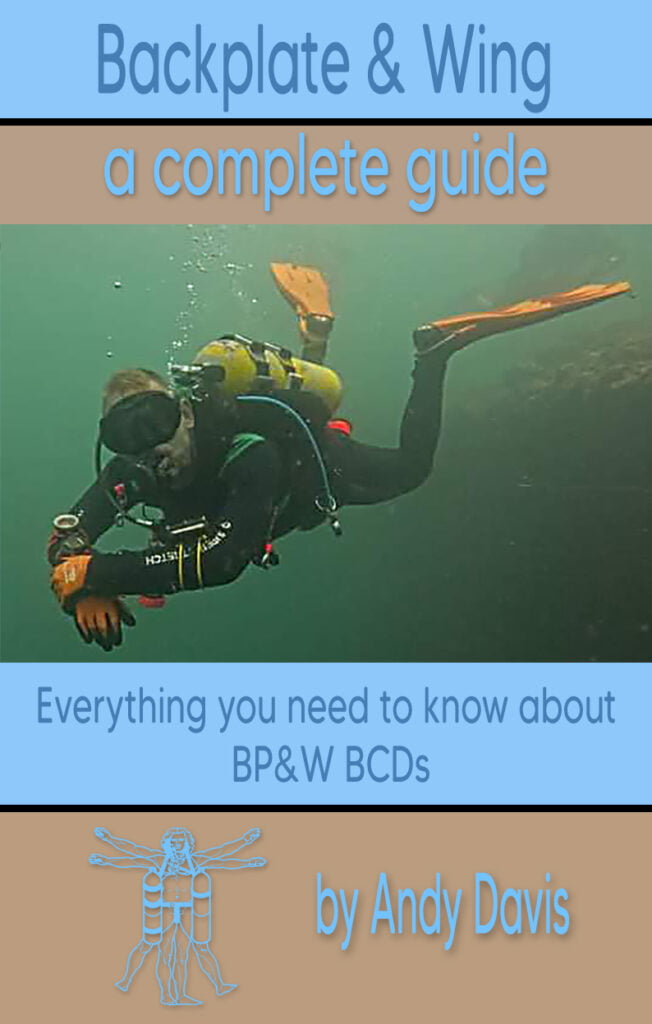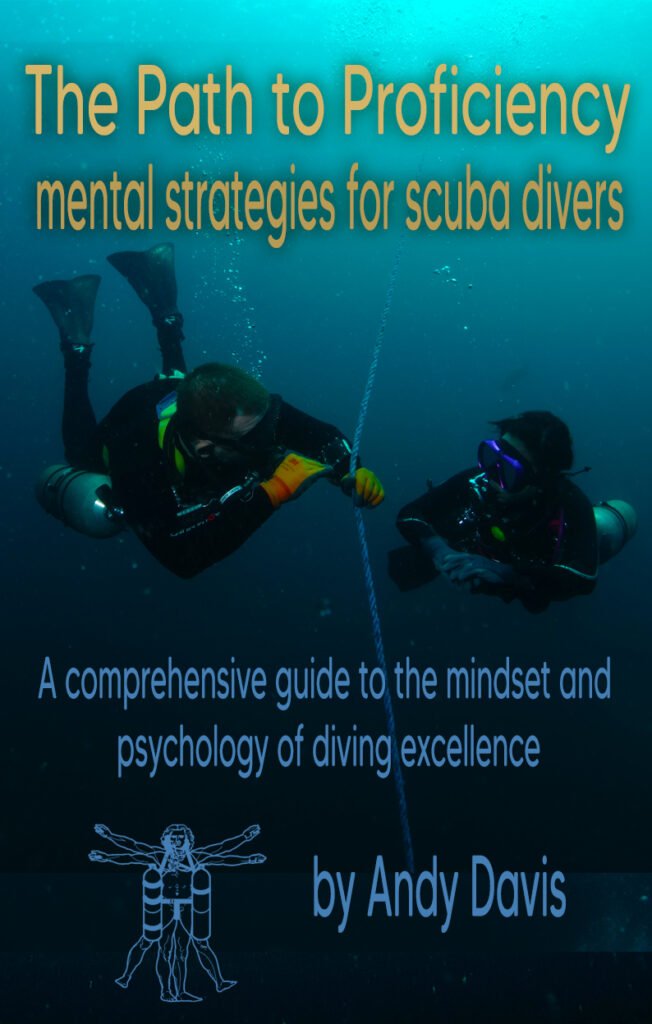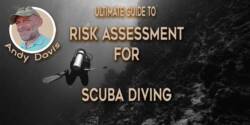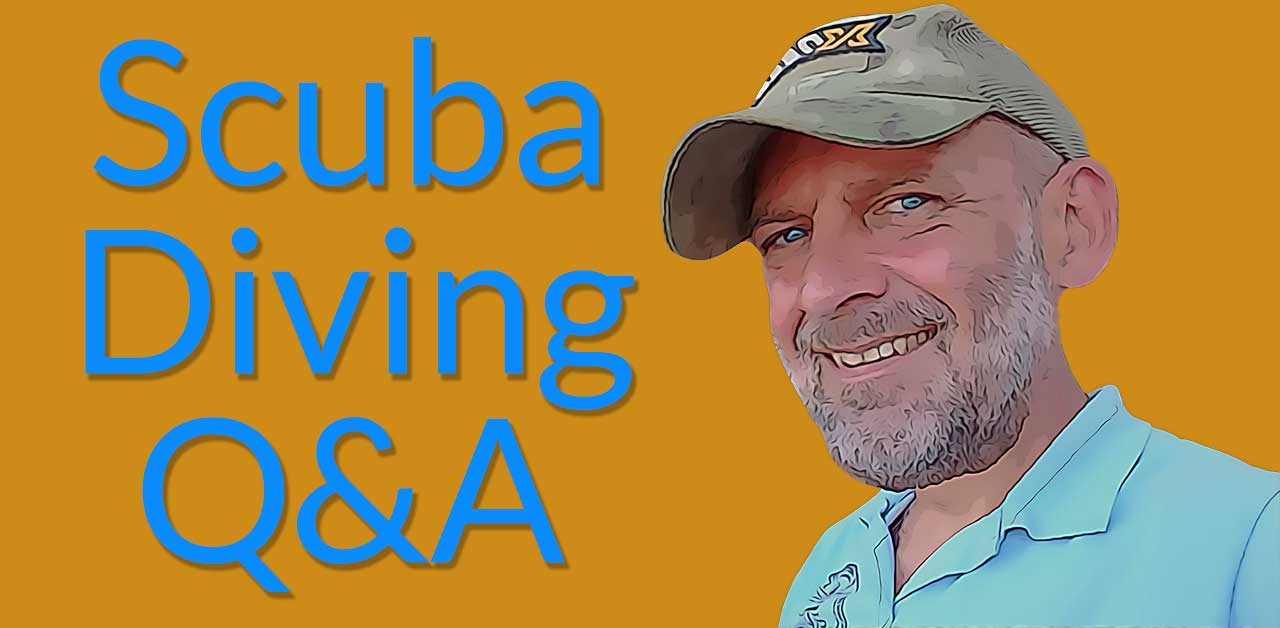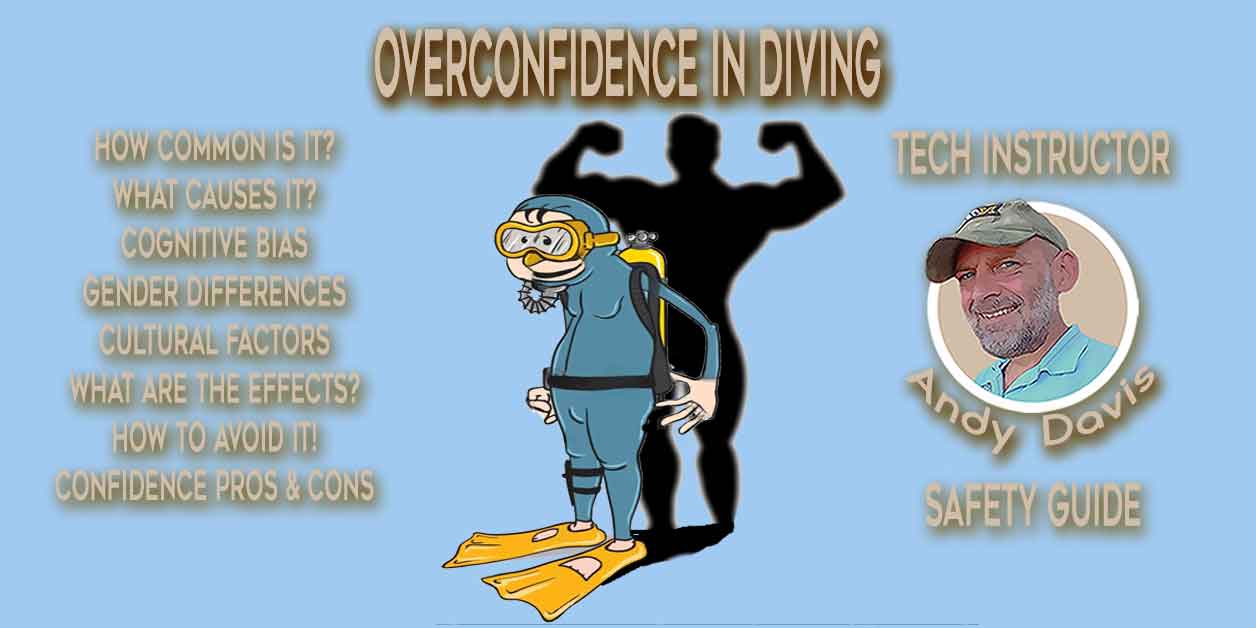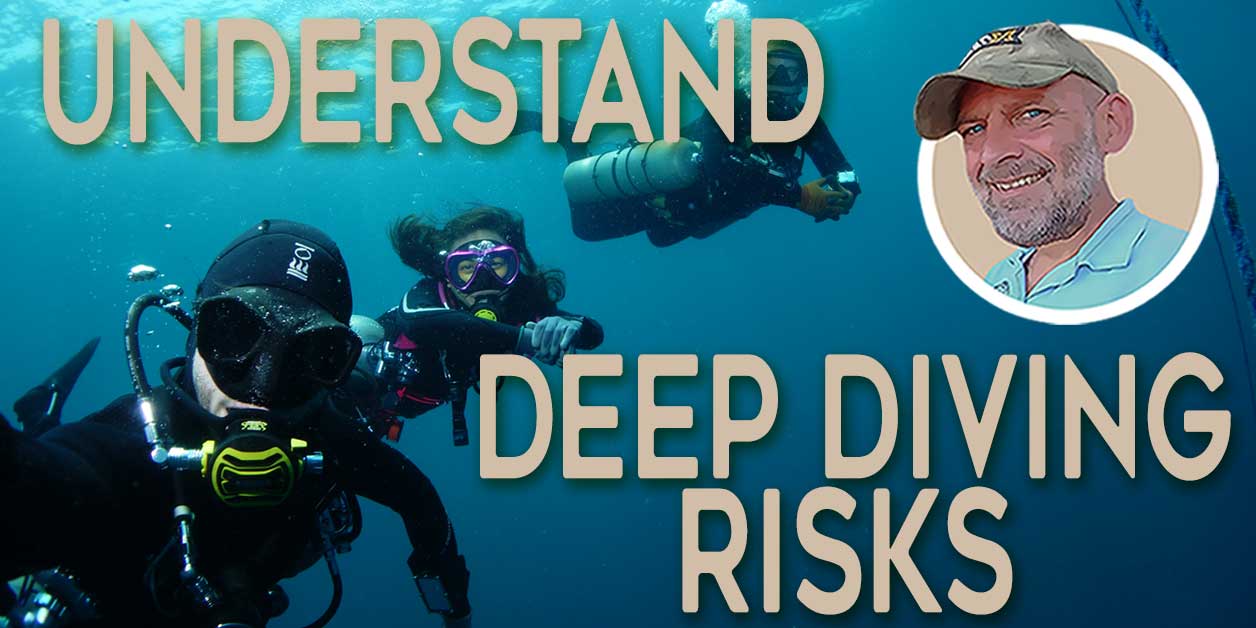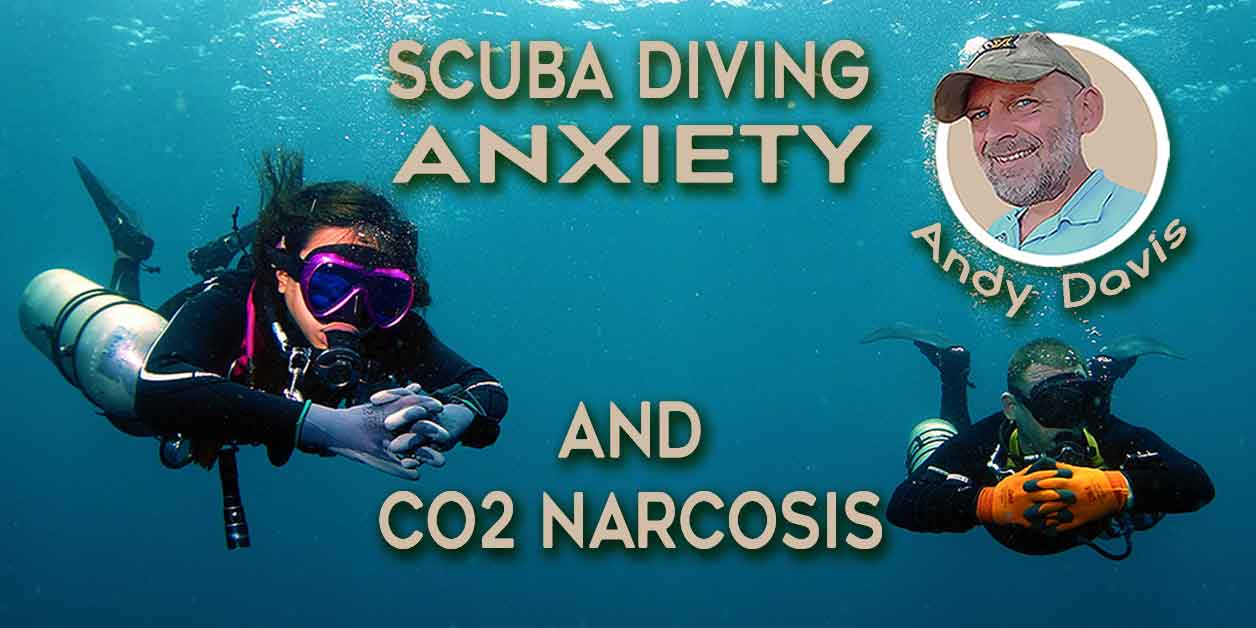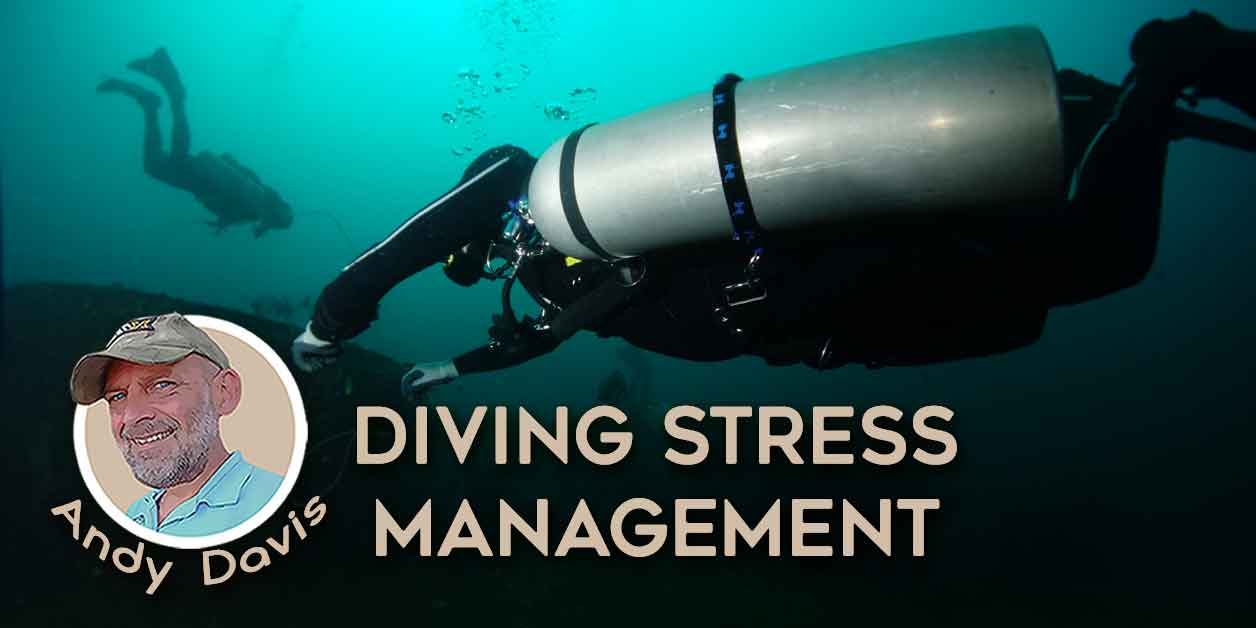Ten Essential Tips For Muffled Hearing After Diving: An Ultimate Guide To Ear Care For Divers
After an exhilarating dive, it’s not uncommon for new divers to experience muffled hearing after diving, or the sensation of clogged or waterlogged ears.
Many divers mistakenly attribute these symptoms to water trapped in the outer ear canal. However, the truth is that most of the time, it’s not water causing the issue, but fluid and inflammation in the middle ear.
Understanding the real causes and implementing proper ear care practices can make a significant difference in maintaining healthy ears and enhancing your diving experience. For that reason, it is important to understand the differences between:
- Outer ear infection (Otitis Externa) in divers
- Muffled hearing after diving
- The sensation of waterlogged ears after a dive
In this article, I will debunk the myths surrounding muffled hearing after diving and provide you with ten essential tips to keep your ears healthy. By following these tips, you can dispel dangerous practices that some less experienced divers may promote and ensure optimal ear health for future dives.
10 Key Points About Muffled Hearing After Diving
Here are the 10 key points I’ll cover in this article:
- Muffled hearing after diving is often caused by fluid and/or inflammation in the middle ear, not trapped water in the outer ear canal.
- Novice divers should practice equalizing gently and consistently during descent to avoid inflammation and fluid buildup in the middle ear.
- If the muffled sensation persists, be aware that it typically resolves within a few hours.
- Focus on developing proper equalizing techniques through proactive light and repetitive attempts frequently during the descent, rather than relying on forceful maneuvers only when discomfort arises.
- Understand that the cause of muffled hearing after diving is primarily a skills issue, and experienced divers typically do not encounter this problem.
- Avoid using harsh chemicals such as alcohol, vinegar, or peroxide in your ears, as they can strip away protective antimicrobial and lubricating ear wax’; increasing your risk of diving ear infection.
- Reserve the use of antiseptic chemicals for active ear infections. Although it is highly recommended to seek medical attention and use prescribed antibiotic drops for effective treatment.
- If you experience a waterlogged sensation due to loosened ear wax and debris, allow nature to take its course, rinsing out with fresh water as needed.
- Differentiate between outer-ear infections, ear canal wetness, and muffled hearing after diving, as they can coexist but have distinct causes.
- Establish a post-dive ear care routine that includes immediate flushing with fresh water and using a drop of olive oil to lubricate and protect the ear canal if dry itching persists.
By following these ten points, you can better manage muffled hearing after diving and promote overall ear health during your diving adventures.
Where Some Divers Get It Wrong
Over three decades as a diver and professional diving instructor, I have seen many divers abuse their ears. What’s more, they happily spread those bad practices as well-meaning advice. The idea seems very intuitive, but it is wrong. Let’s stop that misinformation process!

Here is what commonly happens:
- Inexperienced divers wrongly assume that muffled hearing after diving and/or the sensation of wet ears indicates that water is trapped within their outer ear canal.
- In an attempt to “remove the trapped water”, they pour harsh chemicals, like alcohol, vinegar, or peroxide, into their ears.
- Those chemicals strip away the protective ear wax. This dries out and cracks sensitive skin within the ear canal.
- As the ear canal skin dries and cracks, the diver becomes far more susceptible to ear infections.
- When the diver perceives they are vulnerable to ear infections, they double down on applying harsh chemicals to their ears after every dive.
- In short, once harsh chemicals are mistakenly used in the ears, the diver becomes reliant upon their continual use to keep ear infections at bay.
Why Can’t I Hear Normally After Diving?
It is common for less experienced divers to notice that their hearing is muffled after diving. This sensation has an easy explanation, and it has nothing to do with “water in the ears”.
Equalization And Muffled Hearing After Diving
One of the main reasons novice divers encounter middle ear fluid and inflammation is improper equalization techniques. Equalizing is the process of equalizing the pressure in your middle ear with the surrounding environment as you descend.
Novice divers tend to over-forcefully equalize, exerting excessive pressure on their ears. This can lead to trauma in the middle ear and cause tissue inflammation and fluid accumulation.
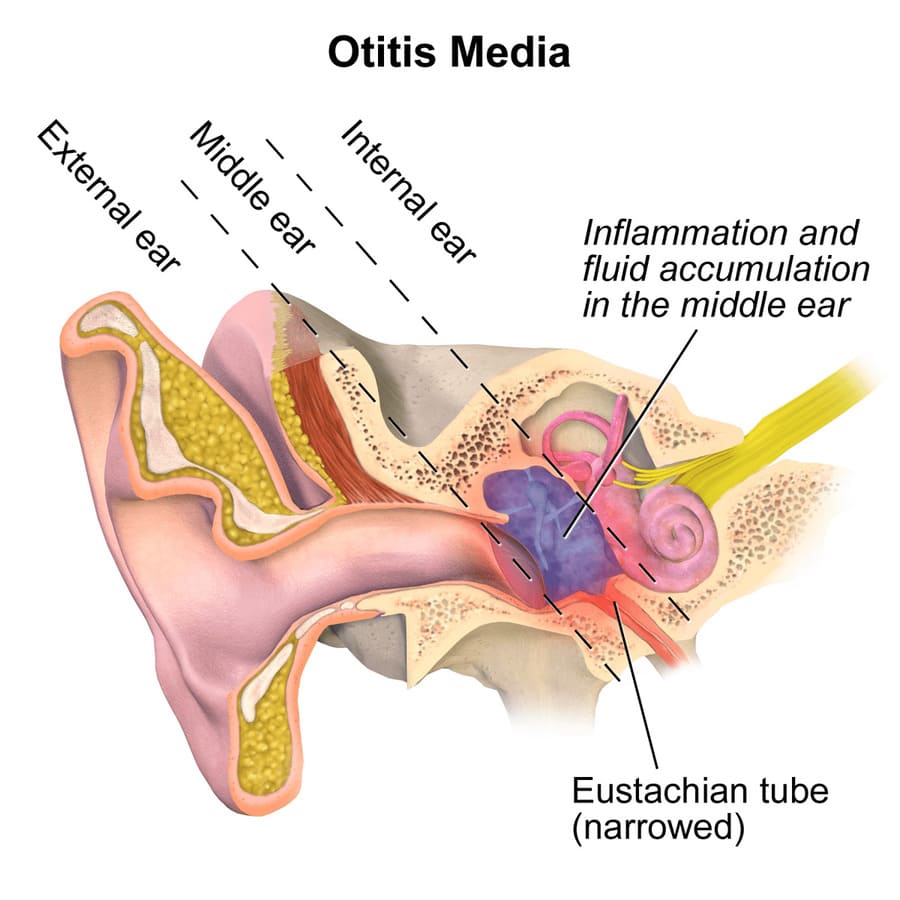
Over-Forceful Equalization
Improper equalization techniques play a significant role in the development of fluid and inflammation in the middle ear for novice divers. When equalizing, divers aim to balance the pressure in their middle ear with the surrounding environment during descent.
Equalize your ears very lightly. A number of small equalizations are far more effective than one big equalization.
Delays in Equalizing during Descent
Additionally, delays in equalizing during descent can contribute to middle ear issues. Novice divers may not equalize frequently or proactively enough, allowing pressure to build up in the middle ear. This pressure imbalance can lead to discomfort, muffled hearing, and the sensation of wet ears.
You should equalize your ears before you feel any pressure.
Resolving Muffled Hearing After Diving: Proficient Equalization Skills
The good news is that the problem of muffled hearing and fluid/inflammation in the middle ear typically goes away as divers become more proficient in equalizing. It is essential to develop proper equalization techniques to prevent these issues. Here are some key points to keep in mind:
- Light, repetitive, and proactive equalization attempts every foot or so are more effective than large, powerful equalizations only when pressure or discomfort is already felt.
- Experienced and skillful divers rarely encounter these problems because they have honed their equalization skills over time.
- Practicing equalization techniques regularly and seeking guidance from diving professionals can help novices improve their equalization skills and minimize the risk of middle ear issues.
By focusing on improving equalization techniques, novice divers can significantly reduce the occurrence of muffled hearing and middle ear fluid/inflammation, enhancing their overall diving experience.
Managing the Sensation of Muffled Hearing After Diving
Experiencing a muffled sensation in your ears after a dive can be a temporary inconvenience, but rest assured that it typically resolves on its own within 1-2 hours post-dive. In fact, many divers report a noticeable ‘pop’ as the pressure equalizes and the sensation dissipates naturally. Here are some key points to help you manage the muffled hearing sensation effectively:
Natural Resolution and Self-Care
- Time Heals: The muffled sensation is a common occurrence among divers and is part of the body’s natural adjustment process. Giving it time is often the best solution as the pressure in your ears equalizes and the sensation fades away on its own.
- Be Patient: It’s important to be patient and avoid undue worry. The muffled sensation is typically a temporary issue and does not require immediate medical intervention.
- When to seek medical attention: You should seek medical advice if you experience any ear pain, vertigo, or if muffled hearing persists over 12 hours.
Relief for Persistent Muffled Sensation
If the muffled sensation persists beyond the expected timeframe or is accompanied by discomfort, it may be inflammation-based. In such cases, nonsteroidal anti-inflammatory drugs (NSAIDs) can provide relief by reducing inflammation. However, it is advisable to consult with a healthcare professional before taking any medication.
Clarifying Misconceptions
- Not Water Trapped in Outer Ear: Contrary to popular belief, the muffled sensation after diving is not caused by water trapped in the outer ear canal. It primarily stems from pressure imbalances and fluid/inflammation in the middle ear.
- Different from Swimmer’s Ear: It’s important to differentiate the muffled sensation from “Swimmer’s Ear.” Swimmer’s Ear, also known as Otitis Externa, refers to a painful infection of the outer ear canal, unrelated to the muffled hearing sensation experienced by divers.
The Role of Ear Wax in Ear Protection
Ear wax, also known as cerumen, plays a crucial role in protecting our ears and preventing infections. Understanding the importance of ear wax can help divers maintain optimal ear health. Let’s delve into its significance and the risks associated with stripping away this natural protective barrier.
The Protective Properties of Ear Wax For Divers
Ear wax serves as a natural barrier against ear infections. It is vital for scuba divers; especially when diving in saltwater environments that can dry out the ear canals. Ear wax is important because it offers several protective properties that maintain healthy ears when diving:
- Antimicrobial Defense: Ear wax contains a full spectrum of antimicrobial peptides that help fend off bacteria and fungi, preventing them from causing infections in the external auditory canal. These peptides play a crucial role in maintaining the health of the ear canal.
- Physical Barrier: Ear wax acts as a physical barrier, trapping harmful organic particles and preventing them from making contact with delicate ear canal skin including the eardrum.
- Acidic Environment: The secretions in ear wax create an acidic environment that helps maintain the health of the ear canal. This acidic environment plays a vital role in killing bacteria and fungi, thereby preventing infections.
The Risks of Stripping Away Ear Wax
Using noxious chemicals like alcohol, vinegar, and peroxide to clean the ears can have detrimental effects on ear wax and increase the risk of ear infections. Here’s why:
- Removal of Protective Antimicrobial Peptides: Ear wax contains essential antimicrobial peptides that act as a defense mechanism against infections. Using harsh chemicals can strip away these peptides, leaving the ear canal more susceptible to bacterial and fungal growth.
- Disruption of the Protective Barrier: Ear wax forms a protective barrier that prevents the entry of foreign particles and microorganisms. It also stops any residue salt crystals from scratching and drying out the skin after diving. Even when diluted, chemicals like alcohol, hydrogen peroxide, or vinegar can disrupt this barrier, compromising the ear’s natural defense system.
Whilst chemicals solutions using dilute alcohol, peroxide or vinegar can be beneficial in eradicating a fledgling ear infection, they can help cause infections when used unnecessarily.
Embracing Proper Ear Care Practices For Diving
To maintain healthy ears and preserve the protective benefits of ear wax, it is essential to adopt proper ear care practices:
- Avoid Noxious Chemicals: Refrain from using alcohol, vinegar, peroxide, or other harsh chemicals in your ears. These substances can strip away ear wax and disrupt the natural balance of the ear canal.
- Rinse with Fresh Water: After diving, gently rinse your ear canal with fresh water to remove salt and organic particles. This helps maintain cleanliness without compromising the protective properties of ear wax. Removing salt residue is important because it can dry out and crack the fragile ear canal skin. Additionally, salt crystals will scratch the skin and this enables infections to occur.
- Prescribed Treatments for Infections: If you have an active ear infection, it is important to seek medical advice. Prescribed antibiotic drops are a far better solution for treating ear infections than using household cleaning liquids.
By recognizing the antimicrobial and protective properties of ear wax and avoiding harmful practices that strip away its benefits, divers can ensure the well-being of their ears and minimize the risk of infections.
The Sensation of Water-Logged Ears After Diving
After diving, you may sometimes encounter a distinct sensation of water-logged ears. Especially if you haven’t dived for a while. This feeling is different from muffled hearing or middle ear fluid issues discussed earlier.
The feeling of wet ears after diving occurs when water immersion loosens the ear wax in the outer ear canal, leading to a sensation of the ears being water-logged post-dive. It’s important to note that this sensation typically does not cause a feeling of fullness or muffled hearing.
Managing Water-Logged Ears
To effectively manage the feeling of water-logged ears after diving, consider the following tips:
- Allow Natural Drainage: In most cases, the sensation of water-logged ears will resolve on its own as the water naturally drains out of the ear canal. This process usually takes some time, typically within a few hours. It’s important to resist the urge to forcefully remove the water, as this may cause discomfort or potential injury.
- Avoid Excessive Intervention: While it can be tempting to use cotton swabs, earplugs, or other objects to remove the water from your ears, it’s best to avoid excessive intervention. These methods can push the water further into the ear canal or potentially damage delicate structures. Letting the body’s natural mechanisms work is often the safest approach.
- Gentle Tilting and Shaking: To encourage water drainage, you can try gently tilting your head to the side and shaking it slightly. This can help facilitate the movement of water out of the ear canal. However, be cautious not to tilt or shake your head too forcefully, as this may cause discomfort or complications.
- Rinsing with Fresh Water: If the sensation persists or is bothersome, you can rinse your outer ear with clean, fresh water. Use a gentle stream of water to flush out any remaining water or debris. Avoid using excessive force or chemicals, as they can disrupt the natural balance of the ear.
- Give it Time: Loosened ear wax will run out of the ears slowly of its own accord. The remaining wax will dry up again, and continue doing its essential job in protecting your ear canal from infection.
Remember, the feeling of water-logged ears is primarily related to water affecting the outer ear wax and is not the same as muffled hearing or middle ear fluid issues. By allowing natural drainage and adopting gentle techniques when necessary, you can effectively manage the sensation and promote ear health after diving.
Swimmer’s Ear and Otitis Externa
When it comes to ear health after diving, it’s crucial to understand the distinction between muffled ears and Otitis Externa, commonly known as “swimmer’s ear.” Let’s explore these two conditions to gain clarity on their differences and appropriate management.
What is Swimmer’s Ear?
Many scuba divers colloquially refer to “swimmer’s ear” when describing the sensation of muffled ears and post-dive ear canal wetness. As I have explained, these sensations are primarily caused by issues related to equalization and fluid/inflammation in the middle ear. It is important to remember the following key points:
What is Otitis Externa?
Otitis external is a medical condition characterized by inflammation, redness, and swelling of the external ear canal, the tube connecting the outer ear to the eardrum.
Otitis externa earned its medical nickname “swimmer’s ear” due to the increased susceptibility to inflammation caused by frequent or prolonged immersion in water. Understanding this condition is important, and here are key points to consider:
- Otitis externa primarily affects the external ear canal, causing inflammation and discomfort.
- Symptoms of otitis externa typically include ear pain, which can be severe, along with itchiness in the ear canal.
- Another common symptom is the presence of a discharge of liquid or pus from the affected ear.
- Temporary hearing loss, to some degree, may also occur.
- It’s important to note that otitis externa typically affects only one ear, rather than both.
Be Cautious About Self-Treating Diving Ear Infections
If you are suffering from a diving outer ear infection, then it can be tempting to use chemicals like alcohol, peroxide, or vinegar in your ears. As with any infection, this would be a haphazard and inefficient means of treatment. It could make the issue worse.
Seek Medical Attention For A Diving Ear Infection
If you experience symptoms of otitis externa, it is advisable to seek medical attention from a healthcare professional. A visit to an otolaryngologist or an ear, nose, and throat specialist can help diagnose the condition accurately and provide appropriate treatment.
Remember, otitis external is a distinct condition that affects the external ear canal. Its symptoms, such as ear pain, itchiness, discharge, and temporary hearing loss, should prompt you to seek medical care for proper diagnosis and treatment.
Avoiding Bad Practices That Enable Diving Ear Infections
To ensure your ear health and prevent diving-related ear infections, it is crucial to avoid certain practices that can worsen the condition. Follow these guidelines to protect your ears:
- Avoid Inserting Objects: Never put objects into your ears that can scratch or damage the delicate skin of the ear canal. Scratches create openings for bacteria, increasing the risk of infection. Protect your ears by refraining from inserting anything into them.
- Flush Out Ears with Fresh Water: After each diving session, flush out your ears with fresh water immediately. This helps remove salt and debris that can dry up the skin of the ear canal, leading to cracks and vulnerability to infections. Proper flushing promotes a healthy environment for your ears.
- Beware of Harsh Chemicals: Do not use household cleaning chemicals such as alcohol, vinegar, or peroxide in your ears. These substances strip away ear wax, dry out the fragile skin of the ear canal, and disrupt its natural antimicrobial and anti-fungal defenses. Using such chemicals can worsen the condition and increase the risk of complications.
- Discourage Unsafe Practices: It’s important to be cautious of viral misinformation that promotes the liberal use of harsh chemicals as a quick fix for common ear sensations after diving. These practices fail to distinguish between self-treatment for ear infections, drying out water-logged ears, or addressing muffled hearing. As explained earlier, these are separate issues with distinct solutions. Relying on harsh chemicals does not address the root cause and can even lead to further infections.
Remember, household cleaning chemicals are not appropriate treatments for active Otitis Externa. If you suspect an ear infection, seek professional medical advice. Prescribed antibiotic ear drops are the recommended course of action to effectively treat the infection and promote proper healing.
By avoiding these unsafe practices, you can protect your ears and reduce the risk of diving-related ear infections. Prioritize your ear health and take the necessary steps to maintain their well-being.
Effective Post-Dive Ear Care Regimen
Taking proper care of your ears after a dive is crucial for maintaining their health and preventing potential issues.
As a full-time technical diving instructor for several decades, I use a low-impact ear care regimen. This system works perfectly for me and has prevented ear infections over ten thousand dives; even when spending hours in the water every day.
In fact, the only time I have suffered a (double!) ear infection was as a novice diver when I experimented with using a commercial ‘Swimmer’s Ear’ solution during a diving holiday to the Maldives. Not only did it ruin my dream diving trip, it was also extremely painful and took weeks to fully resolve with anti-biotics.
I recommend trying the following post-dive ear care routine to ensure optimal ear hygiene:
Flushing the Ears with Fresh Water After Diving
After each dive, it’s essential to immediately flush your ears with fresh water. This simple step helps remove salts and organic particles that may have entered the ear canal during your underwater adventure. Flushing with fresh water:
- Helps prevent salt buildup and dryness in the ear canal.
- Washes away any debris or impurities that could lead to discomfort or infection.
- Maintains a clean and healthy environment within the ear.
Lubricating the Ears with Olive Oil After Diving
If you experience itching or dryness in the ear canal after diving, using a drop of olive oil can provide relief and protection. Olive oil acts as a natural lubricant, keeping the ear canal moisturized and reducing the risk of irritation. Here’s how to apply it:
- Ensure your ears are clean and dry before using olive oil.
- Tilt your head to the side and gently pull the earlobe to straighten the ear canal.
- Using a clean dropper, add a single drop of olive oil into the ear canal.
- Stay in this position for a few minutes to allow the oil to coat the ear canal.
- Tilt your head back upright to let any excess oil drain out.
- Repeat the process for the other ear if needed.
Remember to use only a small amount of olive oil and avoid overfilling the ear canal. If you have any concerns or persistent discomfort, it’s advisable to consult a healthcare professional.
By following this post-dive ear care regimen, you can effectively flush out any debris and protect your ears from potential irritation. Remember to prioritize the health of your ears and maintain a consistent routine for optimal ear care.
Avoiding Muffled Hearing After Diving
In conclusion, addressing muffled hearing after diving requires a combination of understanding and proper care. Let’s recap the ten essential tips to help you overcome this issue:
- Recognize that the problem of muffled hearing after diving often stems from fluid and/or inflammation in the middle ear, not water trapped in the outer ear canal.
- Novice divers should avoid over-forceful equalization and work on equalizing proactively throughout the descent. This avoids causing inflammation within or pushing fluid into, the middle ear.
- If the muffled sensation persists, consider taking NSAIDs, but rest assured that it usually resolves within a couple of hours.
- Focus on developing equalizing skills through light, repetitive attempts during the dive, rather than powerful maneuvers only when discomfort arises.
- Remember that this is primarily a skills issue, and experienced divers typically don’t encounter this problem.
- Avoid using harsh chemicals like alcohol, vinegar, or peroxide in your ears, as they strip away the protective ear wax and increase the risk of infections.
- Reserve the use of chemicals for active ear infections and rely on prescribed antibiotic drops for treatment.
- If you experience a waterlogged ear feeling due to loosened ear wax and debris, let nature take its course, rinsing with fresh water at most.
- Differentiate between, outer-ear infection, ear canal wetness, and muffled hearing after diving as they can coexist but can have distinct causes.
- Implement an effective post-dive ear care routine, including immediate flushing with fresh water and using a drop of olive oil to lubricate and protect the ear canal if itching persists.
By following these essential tips, you can enhance your diving experience and minimize the occurrence of muffled hearing, ensuring a safe and enjoyable underwater adventure.
About The Author

Andy Davis is a RAID, PADI TecRec, ANDI, BSAC, and SSI-qualified independent technical diving instructor who specializes in teaching sidemount, trimix, and advanced wreck diving courses.
Currently residing in Subic Bay, Philippines; he has amassed more than 10,000 open-circuit and CCR dives over three decades of challenging diving across the globe.
Andy has published numerous diving magazine articles and designed advanced certification courses for several dive training agencies, He regularly tests and reviews new dive gear for scuba equipment manufacturers. Andy is currently writing a series of advanced diving books and creating a range of tech diving clothing and accessories.
Prior to becoming a professional technical diving educator in 2006, Andy was a commissioned officer in the Royal Air Force and has served in Iraq, Afghanistan, Belize, and Cyprus.
In 2023, Andy was named in the “Who’s Who of Sidemount” list by GUE InDepth Magazine.
Purchase my exclusive diving ebooks!
The sensation of blocked ears after diving is often due to fluids & inflammation in the middle ear; mainly caused by late or over-forceful equalization. Fluids typically drain spontaneously within a few hours.
The sensation of dull hearing and blocked ears after diving usually resolved on its own within a few hours. If not, contact an ear doctor.
Ears can feel clogged due to inflammation or fluid in the middle ear. This is mainly due to excess pressure; either equalizing too late or over-forcefully.
Originally posted 2023-06-15 13:20:30.





